Belonging
How Iowa’s culture plays a role in workplace inclusion

Business Record Staff Mar 10, 2023 | 6:00 am
14 min read time
3,214 wordsBusiness Record Insider, Diversity, Equity and Inclusion, Workforce DevelopmentThis series was reported by Emily Kestel, Michael Crumb, Sarah Bogaards and Nora Felder. All photos are contributed, except where otherwise noted.
Editor’s note: As a business publication, one of the most pressing issues we’ve covered is workplace inclusion. We have covered numerous stories on the topic – related to race, gender, veterans, people with disabilities, the LGBTQ community, immigrants, working parents and more. We do this because it’s our mission to help businesses do business better, and as businesses continue looking to recruit and retain top talent, understanding the nuances of diversity, equity and belonging at work is paramount.
This is part one of a three-part series looking at how the state’s history and values play a role in workplace inclusion. Businesses do not operate in silos, but are part of a greater societal ecosystem within our communities and states. We felt there was no better way to start this series than to talk about Iowa’s history with inclusion, because an understanding of the past is needed to see how we got to the current moment. Part two, which will publish March 17, will focus on how this affects the workforce, and part three, publishing March 24, will talk about how leaders can approach solutions.
– Emily Barske, Business Record editor
A look back at Iowa’s history with inclusion
Iowans have a long-standing reputation of being nonconfrontational, benevolent, polite and helpful.
We’ll stop if we see a car pulled over on the side of the highway. We make small talk at the grocery store. We’ll smile and say hello to people we pass on the sidewalk. We help harvest our neighbors’ crops if they’re experiencing hardship.
We’re “Iowa nice.”
Frequently lumped into the “Iowa nice” conversation are references to the state’s progressive history to further prove how the state is a welcoming one.
Perhaps the best-known example of this is the infamous “Iowa Nice” video featuring local actor Scott Siepker that went viral more than a decade ago.
“So I hear you think you know something about Iowa?” he starts, before launching into a list of brag-worthy facts, including the state’s history of legalizing gay marriage, technology innovations, Iowa farmers’ impact on the country’s food supply and its low unemployment rate.
The short film, created in the thick of the 2012 presidential caucus season, was meant to push back against perceptions of Iowa being backward, rural and uneducated.
But the term “Iowa nice” is also scrutinized.
While it’s true that Iowa was a pioneer in civil rights expansions in the 19th and early 20th centuries, Iowa was not without continued instances of racism, discrimination and xenophobia. As in many other states at the time, lynchings and Ku Klux Klan gatherings were occuring between the mid-1800s and early 1900s. Additionally, spurred by the war against Germany, Iowa Gov. William Harding issued a proclamation in 1918 that forbade the use of any language but English in public gatherings of two or more people.
Even today, people who are not white, Christian, heterosexual or English-speaking sometimes experience what can only be deemed as the polar opposite of “Iowa nice.” One example: In 2019, a Des Moines woman intentionally drove over a teenage girl because she was “a Mexican.” Another example: Antisemitic flyers were found in the lawns of some homes in Coralville in December.
Social justice activists and inclusion advocates caution against solely focusing on what happened in the past, saying it distracts from what could or should be happening in the present or future.
If you hang your hat on ‘We were the [third] state to approve gay marriage,’ then you don’t feel like you need to do anything else. You’re going to get behind the times.
Joshua Barr, owner of Raising the Barr LLC and former director of the Des Moines Civil and Human Rights Commission
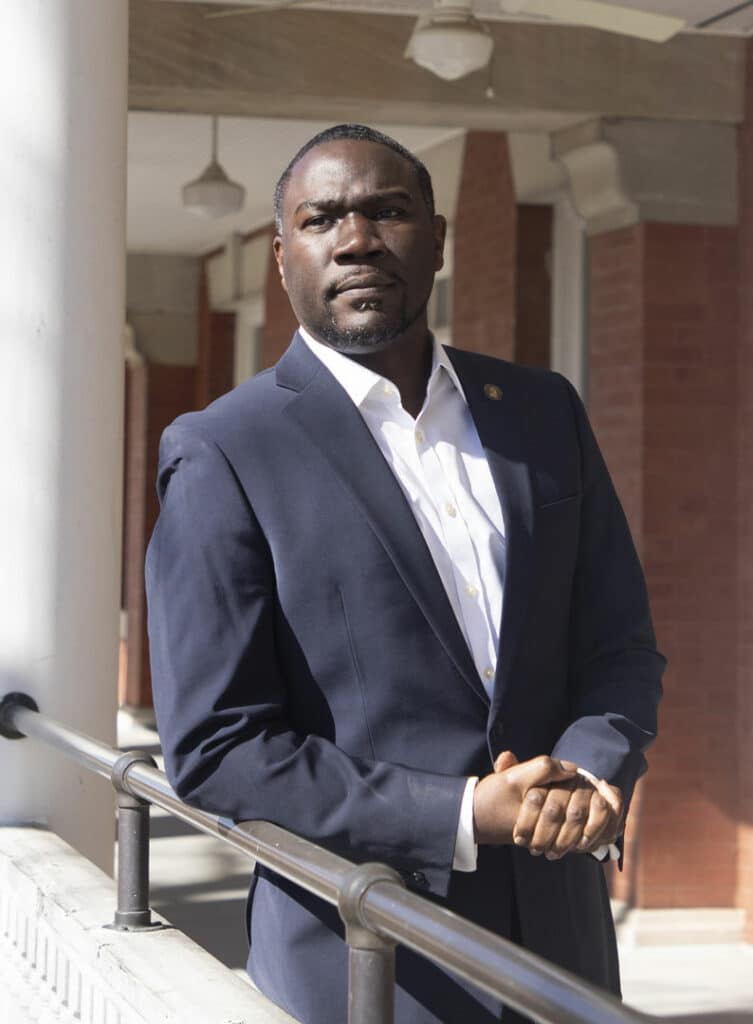
“The past is a guidepost. It’s not a place where you pitch your tent,” said Joshua Barr, owner of Raising the Barr LLC and former director of the Des Moines Civil and Human Rights Commission.
“If you hang your hat on ‘We were the [third] state to approve gay marriage,’ then you don’t feel like you need to do anything else. You’re going to get behind the times,” he said.
Go deeper: Read our entire conversation with Barr
Whether the state or communities are seen as being “with the times” plays a role in where people want to live and work. Employees are increasingly choosing workplaces that align with their personal values, the Harvard Business Review reports. The Business Record is looking back at Iowa’s history with inclusion in this story to give readers a better understanding of where we are now.
‘A bright radical star’
Iowa has a storied history of expanding civil rights to its citizens, oftentimes well before the rest of the country.
In 1839, nearly 25 years before the Emancipation Proclamation was issued, the Iowa Territorial Supreme Court allowed Ralph, an enslaved person from Missouri, to reside in Iowa to retain his freedom. “No man in this territory can be reduced to slavery,” the court said.
Within the next 30 years, the state also legalized interracial marriage, allowed women to own property and integrated Iowa’s schools – well before the rest of the country followed suit.
Presidential candidate Ulysses S. Grant famously called Iowa a “bright radical star” in 1868, when urging the state’s white, male electorate to grant voting rights to Black men.
“In contrast to the cliches and modern platitudes about backwardness, sterility, racial injustice and oppression, an in-depth look at the history of the American Midwest reveals a land of democratic vigor, cultural strength, racial and gender progress, and civic energy,” historian and author Jon Lauck wrote in his book “The Good Country: A History of the American Midwest 1800-1900.”

In fact, Lauck wrote, “the Midwest of the 19th century was the most advanced democratic society that the world had seen to date,” when properly viewed in the context of world history.
Historians believe it may have something to do with the region’s general history of moving away from the traditions and hierarchies that defined the New England and Southern regions.
Iowa’s large Methodist population at the time also played a large role in shaping the state’s identity, as Methodists were largely abolitionists.
The region emphasized participatory politics, fostering robust civic life, promoting education, ending slavery and educating women, Lauck wrote.
‘You don’t turn your back on people who are going to potentially die’
Gov. Robert D. Ray was one figure well known for exemplifying this spirit. He is recognized by many as a humanitarian leader and ally to Southeast Asian refugees during the controversial Vietnam War.

Matt Walsh, author of “The Good Governor: Robert Ray and the Indochinese Refugees of Iowa” and a history professor at Des Moines Area Community College, said the way Ray led Iowa’s refugee resettlement effort deviated from other states.
“I was just very fascinated with Iowa’s connection with the Tai Dam community … and the fact that a governor got so involved in all of this when really he did not have to,” Walsh said. “This is something for presidents, the State Department, ambassadors, but not the governor of a Midwestern state.”
Ray, who served as Iowa governor from 1969 to 1983, was responding to letters from President Gerald Ford and Arthur Crisfield, a former USAID worker, asking governors to support the resettlement effort, but he was also motivated by his Christian faith. The late governor’s mindset was that “you’ve got to do the right thing; you don’t turn your back on people who are going to potentially die,” Walsh said.
“Also, it was kind of seen as patriotism in a way, doing your part. He wanted Iowa to do its part.”
Ray’s priority was to get the refugees employed, but in some ways that effort limited refugees’ economic empowerment and mobility.
Refugees were often placed in low-paying jobs that others were not taking, Walsh said, and the government’s focus on employment meant they had less support in learning English or seeking higher education.
Also, it was kind of seen as patriotism in a way, doing your part. He wanted Iowa to do its part.
Matt Walsh, author of “The Good Governor: Robert Ray and the Indochinese Refugees of Iowa” and a history professor at Des Moines Area Community College
“A lot of [the refugees] were skilled. There are stories of people who were bank presidents working in Vietnam, and they come to the United States, and they are a janitor at a bank,” he said. “There was a big-time general who became a chauffeur. So there is this loss in status that happened.”
Walsh said the first generation of refugees in Iowa likely stayed in working class jobs while the second and third accessed more career opportunities.
Go deeper: Read the full interview with Matt Walsh and the history of the Bureau of Refugee Services.
Inclusive for whom?
“Iowans have a lot to be proud of … in our history of equality, of equal treatment,” Iowa state curator Leo Landis said, adding the caveat that “we cannot give ourselves too much credit,” for there are many instances of sexism, racism, discrimination and hateful rhetoric embedded in the state’s history as well.
“All is not rosy in Iowa all the time,” Landis said. “I think it’s important to understand the richness of our history. I’m a proud Iowan. … But I think it’s important for us to understand what other people have faced. You still can be a proud Iowan and a proud American and understand the stories of when we have failed in ensuring equality.”
Especially in the last few years, Iowa’s image of being a progressive, welcoming and inclusive state has been questioned.
As part of its annual America’s Top States for Business report, a 2022 CNBC study named Iowa as the 10th-best place to live in the U.S., considering factors such as crime rates, environmental quality, health care, inclusiveness of state laws in areas of protections against discrimination and voting rights, and child care.
Iowa’s strengths were its health resources and child care. Its weakness was inclusiveness.
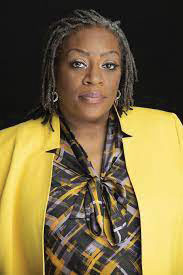
In a TEDxDes Moines talk in 2021, author, activist and executive director of Sankofa Literary & Empowerment Group Abena Imhotep challenged the “unassailable cultural narrative” of “Iowa nice.”
“Iowa nice” is not universally true, especially for those who are marginalized, she said.
While Iowa rolled out the welcome mat for the Tai Dam people who desperately needed refuge, Imhotep said, the construction of Interstate 235 in the mid-20th century wiped out thriving Black communities, like the Center Street Black business district. Walsh said the government’s efforts to settle refugees and connect them to jobs led to feelings of neglect in Des Moines’ Black community, which was experiencing high levels of unemployment at the time.
Throughout the 17-minute TEDTalk, Imhotep illustrates how the “ideals of majority culture impeded those in the margins.”
“If we keep accepting ‘Iowa nice’ as a bulletproof shared story, we’ll continue to acknowledge the perceived good intentions of individual drivers, while disregarding the oppressive roadblocks that inform the realities of marginalized Black Iowans,” she said.
Imhotep said it’s time for us to free ourselves from “Iowa nice” and commit to action and accountability that “repairs the road.”
‘Iowa nice’ is not universally true, especially for those who are marginalized.
Abena Imhotep, activist
Barr believes “Iowa nice” should evolve into “Iowa kind.”
“There’s a difference between being nice and being kind,” Barr said. “Just saying hello is nice. … Being nice is not enough. You need to be kind. And the thing you have to understand is, being kind requires some sort of sacrifice, a sacrifice of your time, sacrifice of certain resources.”
“We have to put in the work as a community if we truly want to be kind. … Real listening requires that you change, and ‘Iowa nice’ isn’t about real listening. It’s very performative, very cosmetic. ‘Iowa nice’ needs to transform to Iowa kind, where we’d be taking care of all humankind within Iowa.”
Barr said a truly inclusive community or workplace is a place of constant engagement where people feel heard, included and valued.
“A utopia for me is where people are being engaged and heard. They’re being included in the decision-making process. They’re being valued through actions by decision-makers, both in businesses and laws, but also when we’re increasing opportunities for young people to self-actualize and self-transcend,” he said.
“We have talent right here [in Iowa], but because we stifle them, and we don’t try to guide them … society suffers.”
Look for part two, which dives into how inclusion plays a role in workplaces, in the next issue of the Business Record.
Iowa’s history with inclusion
Iowa has a storied history of expanding civil rights to its citizens, oftentimes well before the rest of the country. The following is a noncomprehensive timeline of several highlights of Iowa’s progressive history – as well as times where Iowa was not seen as being inclusive.
Special thanks to Iowa state curator Leo Landis for his help in compiling the timeline.
1838
On July 4, the Iowa Territory was established. This is the first year of what is now the state Legislature.

1839
Roughly 25 years before the end of the Civil War, Iowa’s Territorial Supreme Court declared Ralph, an enslaved person from Missouri, a free man. “No man in this territory can be reduced to slavery,” the court said. The “Shattering Silence” sculpture on the Iowa Capitol grounds honors the story of Ralph, and “celebrates the tradition in Iowa’s courts of ensuring the rights and liberties of all the people of the state.” The Iowa Art Council called the piece a commemoration of “those moments when Iowa has been at the forefront of breaking the silence of inequality and commemorates those Iowans who refused to stand by silently when they saw injustice.” Photo by Emily Kestel.
1840
A group of white men accused Nathaniel Morgan, a Black man living in Dubuque, of theft. They publicly dealt out “three hundred lashes” and killed him.
1846
On Dec. 28, Iowa was admitted to the Union, making it the 29th state in the country. A few months later, the General Assembly voted to create the state seal, which reads: “Our liberties we prize, and our rights we will maintain.”
1851
Iowa’s Supreme Court removed legal constraints on interracial marriage, a century before the rest of the country.
1857
Following several persistent removal attempts, Iowa’s General Assembly allowed the Meskwaki people to purchase a settlement in Tama County.
1858
Mary Fellows graduated from what is now Cornell College, becoming the first woman west of the Mississippi to receive a baccalaureate degree.
1860
The University of Iowa became the first university in the nation to admit both men and women on an equal basis.
1868
In September 1867, a 12-year-old girl named Susan Clark was denied admission to a school in Muscatine because she was Black. Her father filed a lawsuit to allow Clark to attend public school. In 1868, the Iowa Supreme Court held that “separate” was not “equal” and said she could attend public school. This effectively integrated Iowa’s schools 96 years before the federal court decision Brown v. Board of Education.
1868
After failing to pass for more than 10 years, Iowa’s electorate – white men – voted to remove the word “white” from voting requirements in the state constitution, marking the first time in U.S. history that, by popular vote, white men consciously gave rights to Black men.
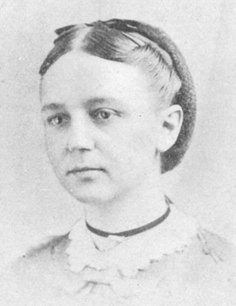
1869
Despite it being illegal for women to vote, Julia Addington became the first woman in the U.S. to be elected to a public office after running to be Mitchell County superintendent. Within a decade, three-quarters of the county superintendents in Iowa were women.
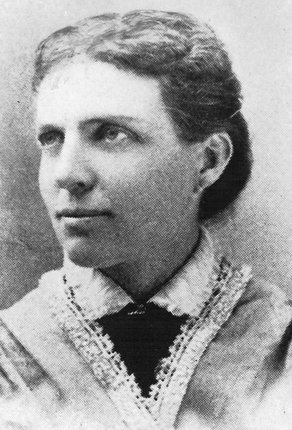
1869
Iowa became the first state in the nation to allow women to join the bar, which led to Arabella Mansfield of Mount Pleasant being the first female attorney in the nation.
1870
Iowa’s population, according to the U.S. Census, passed 1 million for the first time. By 1900, it will have passed 2 million.
1873
Emma Coger, a biracial woman, was forcibly removed from a steamboat dining cabin after being told it was for white people only. Iowa’s Supreme Court ruled that Coger was entitled to the same rights and privileges as white passengers, saying, “The principle of equality is announced and secured by the very first words of our State constitution which relate to the rights of the people, in language most comprehensive, and incapable of misconstruction, namely: ‘All men are, by nature, free and equal.’” Eleven years later, the Iowa Civil Rights Act was passed, which prohibited discrimination in public accommodations, making it one of the first civil rights acts in the nation.
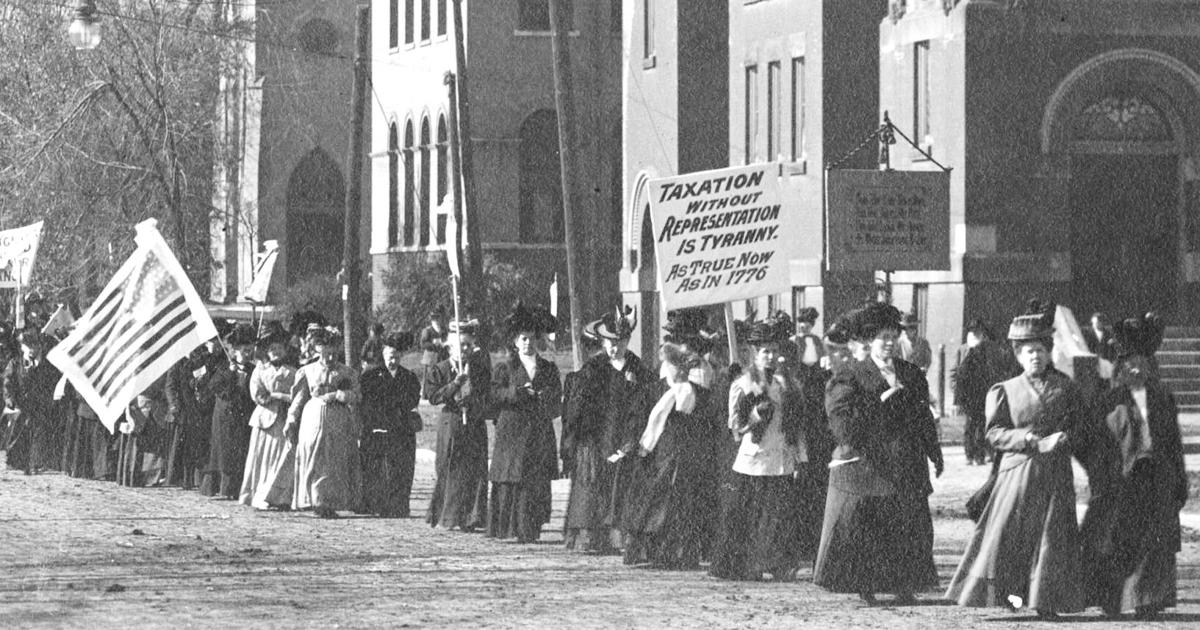
1908
Suffragists held a parade in Boone to increase support for women’s right to vote. It was one of the first suffrage parades in the nation. It proved to be a turning point in the history of the Iowa suffrage movement as the first public display for suffrage in the state.

1917
Fort Des Moines became the first site in the country to train the first officer candidate class of African Americans.
1918
Spurred by the war against Germany, Iowa Gov. William Harding issued the Babel Proclamation, which forbade the use of any language but English in public gatherings of two or more people. A Lutheran pastor was arrested for preaching part of a funeral service for a soldier killed in the war in Swedish because the man’s grandparents did not speak English. Harding at one point in a public speech said that God did not hear prayers that were spoken in any language but English. He would repeal it after the end of World War I.
1919
Iowa became the 10th state to ratify the 19th amendment to the U.S. Constitution, which granted women the right to vote.
1920s
The Ku Klux Klan, in response to the movie “The Birth of a Nation,” gained strength in the Midwest, including several towns in Iowa. The Klan conducted many cross burnings and parades before fading by 1930.
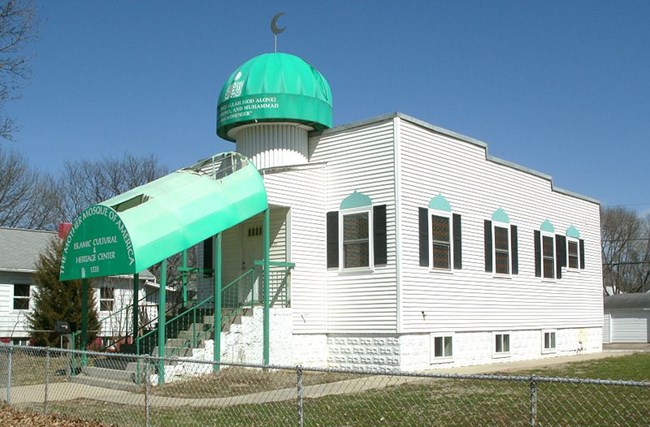
1934
The first purpose-built mosque in North America – the “Mother Mosque” – was built in Cedar Rapids. Muslim immigrants had settled in the area beginning in 1885.
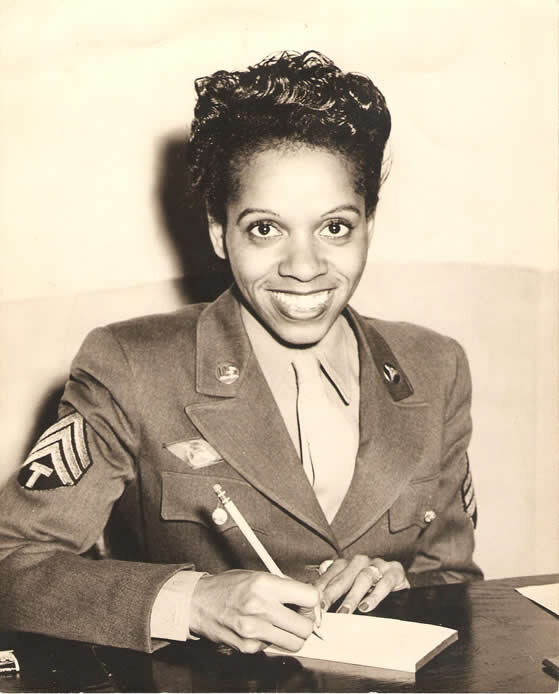
1948
Edna Griffin and others were refused service at Katz Drug Store in Des Moines, because the store “was not equipped to serve colored people.” Griffin organized a boycott, sit-ins and pickets for months in addition to filing charges against the store owner, citing the 1884 Iowa Civil Rights Act.
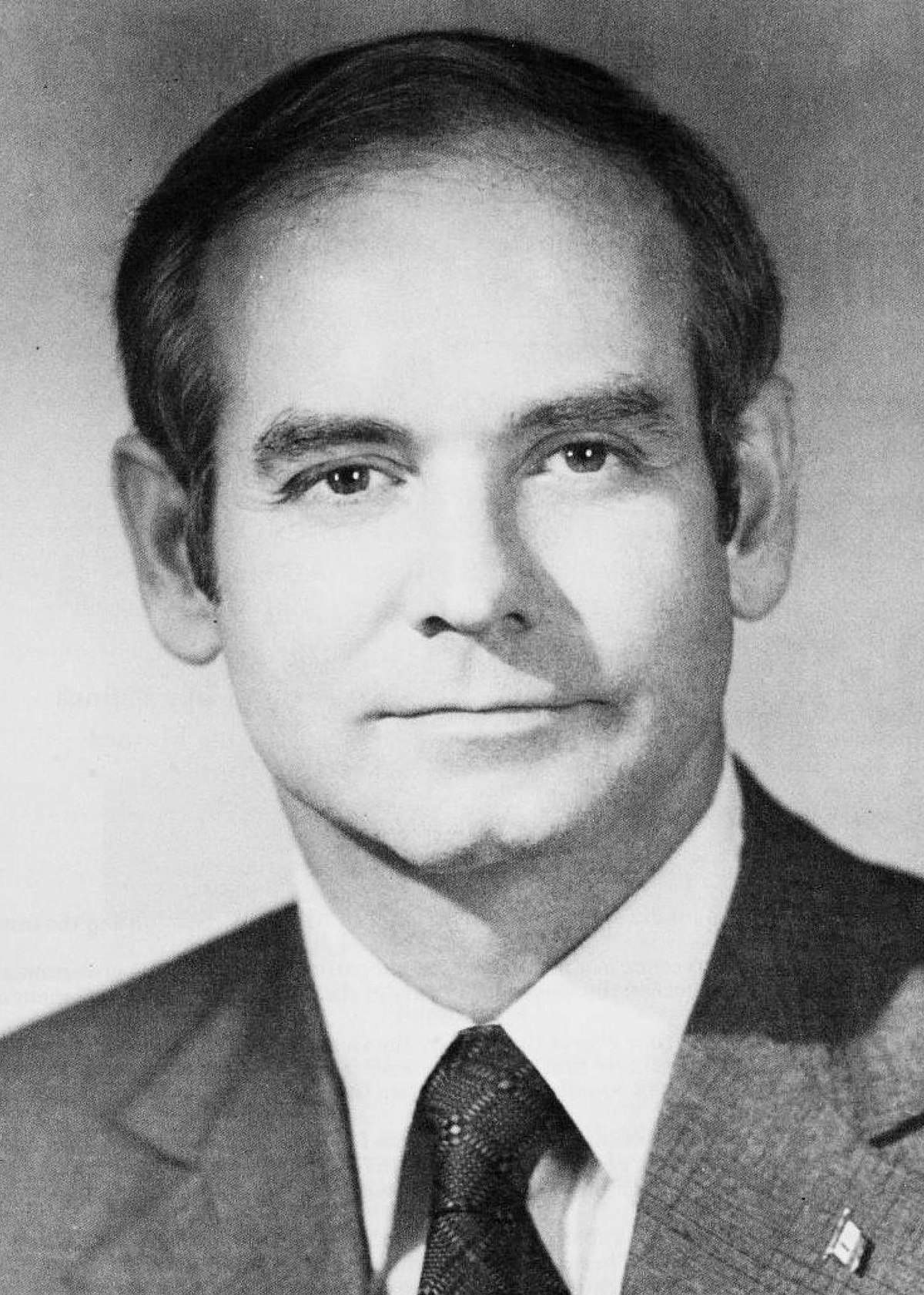
1975
Iowa Gov. Robert Ray created a refugee resettlement program, and welcomed hundreds of Tai Dam refugees into the state at the close of the war in Vietnam.
1990
Iowa Sen. Tom Harkin co-authored the Americans with Disabilities Act.
2009
Under the Varnum v. Brien Iowa Supreme Court decision, Iowa became the third state in the country to allow marriage equality for LGBTQ people.
2020
Iowa becomes the last state in the country to allow those with felony convictions who have served their sentences the right to vote after Gov. Kim Reynolds issued an executive order.










